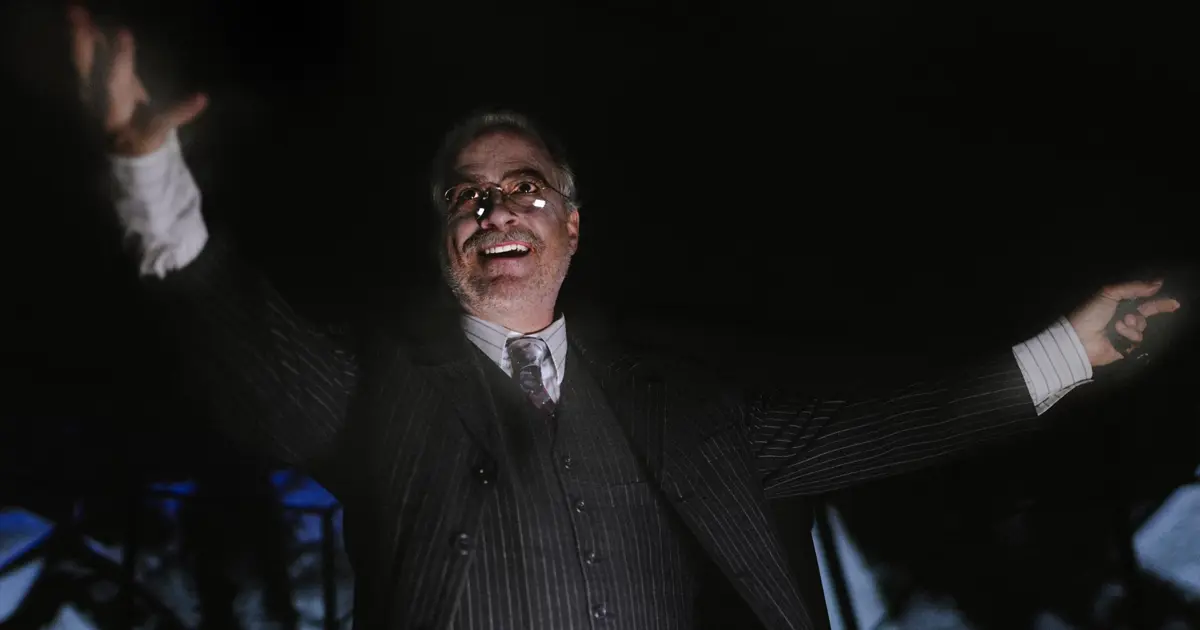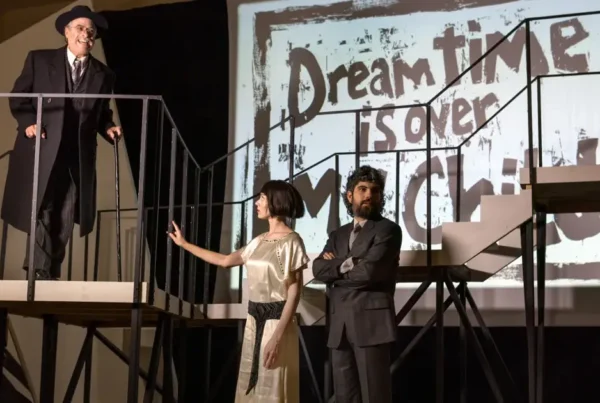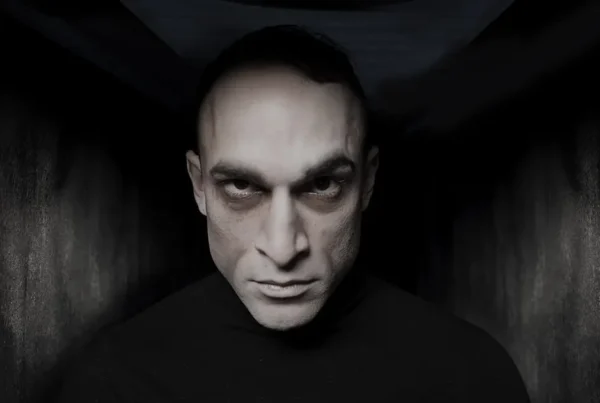
‘Burgh Vivant – In 70s East Germany, long before Ronald Reagan asked Mikhail Gorbachev to tear down the wall, actress and unrepentant socialist, Helene Weigel (Catherine Gowl) graces her theatre with one final show, “The Cabinet of Dr. Caligari.”
In 2024, an audience watches a 1970s theater company perform an adaptation of a 1920s Silent Movie. Things start out meta and get even more meta. It’s a double mousetrap!
In the play-within-the play, a stranger in a strange land, Dr. Caligari (Daniel Krell), literally and figuratively, mesmerizes audiences with his devilish showmanship and his dreaded wooden box.
Franz (Nick Lehane), Hannah (Sara Lindsey) and Uli (Cameron Nickel) watch patiently as Caligari opens his pine cabinet to reveal Cesare (Jerreme Rodriguez), a Frankensteinian somnambulant who makes a terrifying prediction in his hypnotic state.
When Uli asks, “How long will I live?” The alleged-prognosticator responds, “Till Dawn!”
The next morning, Franz and Hannah can’t find Uli. They soon discover that Cesare’s unexpected pronouncement wasn’t a prediction but a threat and seek to solve the mystery of his disappearance. It leads them to a disturbing encounter with Caligari.
But before we get answers, we get a commercial break. Dr. Rauch (a hilariously droll Mark August) promotes the health benefits of Eckstein Number Five, the pride and joy of Abraham Eckstein, the German Jewish tobacco manufacturer. Yes, Rauch is promoting the health benefits of cigarettes!
After we return to our regularly scheduled featured performance, things have gotten even more dire for Franz and Hannah. But that’s okay, because Weigel doesn’t like the ending of the play and decides to change it!
Is “The Cabinet of Dr. Caligari” goth, German expressionism, horror or high art? It’s anyone’s guess.
There are some great performances in “The Cabinet of Dr. Caligari.”
Krell is magnificent as the terrifying titular doctor. He shuffles and begs before the magistrate (August again), but becomes showy and big on stage at the fair, introducing Cesare to the stunned crowd. Then, he becomes tyrannical. It’s a whirlwind of emotions and expressions and Krell handles them with ease.
Gowl is an imperious and stern martinet, but later plays a girl in a kissing booth.
Lindsey is dynamic on the stage, dancing footloose and fancy free…until she isn’t [no spoilers].
Nickel plays Uli as buoyant, lighthearted and bursting with energy, but his character hits a sharp turning point and becomes different. It’s a nice contrast for the actor and he does it superbly.
Yafei Hu’s scenic design is gothic horror with black, jagged blotches of paint on the walls. It’s giving “the patients have taken over the insane asylum” vibes.
Director Jed Allen Harris takes the actors through their paces with this unique play.
There is some excellent costume work from Angela Vesco, particularly Brecht’s lone, crumpled angel wing.
Though we crossed several eras inside the play, it’s still sadly relevant, especially days away from an election where another authoritarian autocrat may yet rise to power once more.
All art is political [sorry, not sorry] .
Quantum isn’t afraid to go out on a limb or into the darkest recesses of the human soul. “The Cabinet of Dr. Caligari” is strange, fascinating and different from every other theatrical production running in town, but like a dak, bitter German beer, it’s not to everyone’s liking.
Right now the Pittsburgh theater scene has comedy, tragedy, fantasy and horror, All of the elements can be found in “The Cabinet of Dr. Caligari.”




